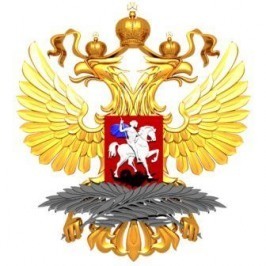There are mounting speculations on further developments as the expiration date of the second 120-day term of the Black Sea Initiative on exporting Ukrainian grain draws nearer. At Kiev and Washington’s instigation, it is being insinuated that the initiative should be both preserved in its existing parameters (the three ports – Odessa, Chernomorsk and Yuzhny – for 120 days with the possibility of another 120-day extension, if none of the three parties – Russia, Türkiye or Ukraine – have any objections) and expanded in terms of time and space (for one year with the addition of more seaports). This is being accompanied by clumsy attempts to invoke UN efforts to ensure global food security.
In this connection, a reminder of the UN Secretary-General’s grain deal concept in general and of how the Istanbul Agreements of July 22, 2022 were signed in particular, is in order. As is common knowledge, Antonio Guterres suggested a package deal to normalise food and fertiliser supplies from Russia and Ukraine as a response to the worsening food crisis against the background of the Covid-19 pandemic, uncontrolled Western money printing, and an accelerated transition to the green economy. This suggestion was formalised in Istanbul on July 22, 2022, in the form of the simultaneous signing of two mutually complementary agreements – the above-mentioned Black Sea Initiative and the Russia-UN Memorandum on promoting Russian agricultural products. Their synchronised and interconnected implementation is designed to reduce the threat of hunger and provide assistance to needy countries in Africa, Asia and Latin America.
But in practice, eight months after the signing, just one part of the package – the exportation of Ukrainian food – is being implemented. Moreover, the mode of its implementation is far from the announced humanitarian aims. In fact, this is a case of catering to Ukraine’s commercial grain exports. Since August 1, 2022, over 23 million tonnes of products (predominantly (70 percent) fodder corn and feed grain) was transported to high-income countries (47 percent), primarily in the EU, and to upper-middle-income countries (34 percent). The share of deliveries to needy countries has been steadily declining to the present 2.6 percent.
It must be noted in particular that owing to the conscientious work done by the Russian specialists at the Joint Coordination Centre in Istanbul in strict conformity with the coordinated rules of procedure, the second-term transportation rates are considerably higher, exceeding the volume of cargoes (10.2 million tonnes) exported during the first 120 days. Nevertheless, this circumstance does not prevent the Ukrainians and their Western sponsors from indiscriminately accusing Russia of failing to live up to its commitments, alleging that Russia is weaponising hunger, and brazenly demanding that the parameters of the Black Sea Initiative be expanded.
Simultaneously, having no compunction, they are keeping silent about the fact that Kiev, for purely political reasons, continues blocking the resumed operation of the Togliatti-Odessa ammonia pipeline. Both Istanbul agreements include provisions to this effect, and ammonia transhipment could have started at the same time as the Ukrainian food exports. But neither the Ukrainians, nor the Westerners are concerned that their actions have led to the under-delivery to world markets of 2.5 million tonnes of raw ammonia, which is sufficient for producing 7 million tonnes of fertilisers that could ensure food supplies to 200 million people. Neither are they concerned with the fertiliser affordability crisis or the physical shortage of fertilisers.
Progress in implementing the Russia-UN Memorandum on promoting Russian agricultural exports is tending towards zero. The reason is the West’s stubborn unwillingness to recognise the second part of the Guterres package and their continued application of sanctions, which, despite all the empty declarations by Washington, Brussels and London, still extend to food and fertilisers. In fact, UN officials are trying to lift restrictions on Russian agricultural products; these restrictions must be null and void in a situation where global food security is at stake. But the UN efforts are futile.
A case in point is Russia’s initiative to hand over its fertilisers (262,000 tonnes) impounded at the ports of Latvia, Lithuania, Estonia and the Netherlands to the poorest countries for free. Six months later, the only delivery released is still that of 20,000 tonnes of fertilisers to Malawi, and this batch is yet to reach its destination. One can imagine the obstacles facing Russian companies as they organise export deliveries that Russia continues to carry out under its own steam without any UN assistance, if even this purely humanitarian project lacking any commercial implications and pursued under the aegis of the UN is being implemented with so much difficulty and procrastination.
Thus, we have to state that the package of agreements proposed by Antonio Guterres and signed in Istanbul on July 22, 2022 is not working. The main problem is that the Western countries are sabotaging the implementation of the Russia-UN Memorandum. As is obvious, the Americans and Europeans are totally unconcerned with either the needs of destitute countries or the efforts of the United Nations, which they have long and persistently attempted to turn into an obedient tool for serving their political interests.
It is high time they stopped playing the food card. The lion’s share of Ukrainian grain is sold at dumping prices for fodder in the EU rather than in the poorest countries. At the same time, they openly put obstacles in the way of Russian agricultural exports, no matter what the Europeans and Americans say to the contrary. After all, they are not strangers to telling lies. The West is shamelessly burying the humanitarian package initiated by the UN Secretary-General.























